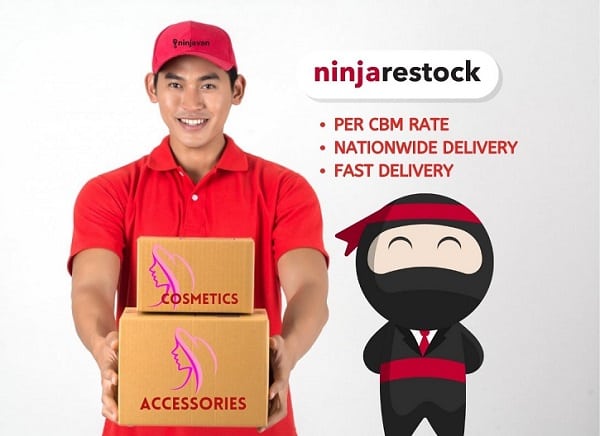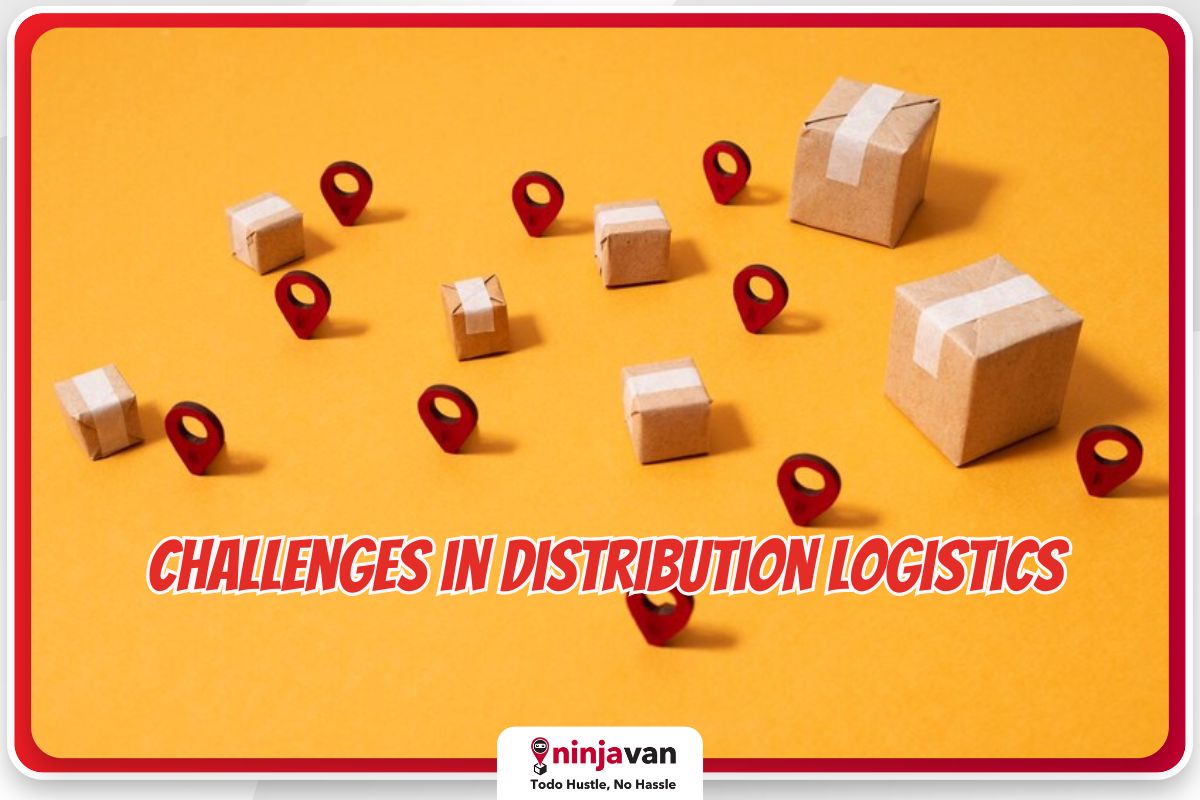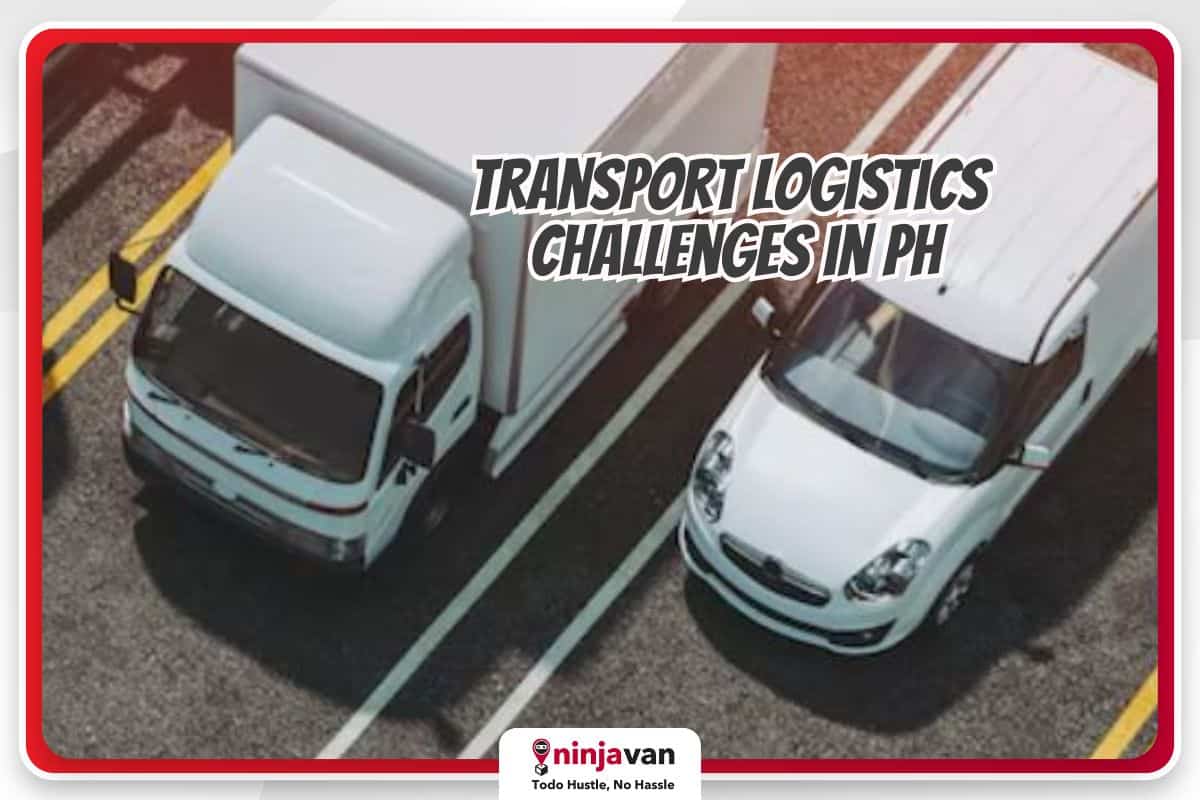Efficient inventory management keeps you in the sweet spot. It stops you from running out of stock and frustrating customers, but also avoids costly overstocking.
Businesses that fail to manage inventory well expose themselves to several dangers, with inefficient use of money being a major one.
Next, your products have to get to the customers as fast as possible, which means implementing the right distribution logistics solution and managing this process well.
Also read: How Are Supply Chain Management and Logistics Different?
What is distribution logistics?
A distribution logistics solution is a plan and the tools used to efficiently move your products from manufacturing or storage to your customers. It encompasses everything from warehousing and inventory management to transportation and delivery.
Here’s a breakdown of what a distribution logistics solution typically involves:
- Warehousing and inventory management: This ensures you have the right amount of stock in the right places to fulfill orders quickly. It includes choosing warehouse locations, managing inventory levels and picking and packing orders.
- Transportation management: This involves selecting the most cost-effective and timely way to get your products to customers. This could involve using different carriers, optimizing routes and managing freight costs.
- Delivery: This is the final leg of the journey, getting your products into the hands of your customers. It can involve last-mile delivery services, customer notifications, and managing returns.
Distribution logistics solutions can look different depending on your business:
- For a large enterprise or ecommerce company: It might involve a network of strategically placed warehouses, advanced inventory management systems, and partnerships with multiple carriers.
- For a brick-and-mortar store: It might be a simpler system with a single warehouse and a local delivery provider. The crucial stage here is making sure your inventory is delivered on time to keep your stores well-stocked.
The importance of distribution logistics
Efficient distribution logistics is important for businesses to maintain a competitive edge in today’s fast-paced market environment. Consider the following:
Customer satisfaction
Effective distribution logistics ensure that products are available upon ordering and customers receive their orders promptly, leading to increased loyalty and positive brand perception.
Cost reduction
Efficient logistics will ensure the right amount of supply or products are on-hand when and where you need them, eliminating unnecessary transport and storage of slow-moving goods.
Better inventory management
Distribution logistics plays a crucial role in managing inventory levels to prevent stockouts or excess inventory. Effective inventory management helps reduce your holding costs and improve cash flow.
Market expansion
An efficient distribution network enables you to reach new markets and expand your customer base. By ensuring your products are available in multiple locations, you can capitalize on new opportunities and increase profitability.

The challenges in distribution logistics
Distribution logistics comes with some challenges that you must resolve to ensure a smooth supply chain. Some of these challenges include:
1. Balancing inventory management
Balancing inventory levels to meet demand while minimizing holding costs is complicated. Overstocking can lead to increased storage costs, while stockouts result in lost sales and dissatisfied customers.
2. Transportation costs
Rising fuel prices and transportation expenses can significantly impact your bottom line. A cost-effective inventory transportation solution and the maintenance of service levels is a constant challenge for logistics managers.
One solution could be less-than-truckload or LTL shipping, which is more affordable than renting an entire truck and allows small businesses to pay for only the space their load takes up.
3. Supply chain disruptions
External factors such as natural disasters, geopolitical events or supplier issues can disrupt supply chains and lead to delays in product delivery. Develop contingency plans and build resilient supply chains to mitigate these risks.
4. Last-mile delivery
Delivering products to customers’ doorsteps, especially in urban areas, poses challenges, such as traffic congestion, parking restrictions and increasing customer expectations for speedy delivery.
A key solution is partnering with a reliable last-mile delivery provider that has the experience and capability to navigate any logistical challenges, and ensure smooth and secure delivery of your products.
Managing distribution logistics
Although distribution logistics poses various challenges, you can adopt strategies to effectively manage your logistics operations:
1. Optimize transportation routes
Use route optimization software to plan the most efficient delivery routes, minimize fuel consumption, and reduce transportation costs. Second-party logistics or 2PL providers can offer efficiency through optimized routes.
2. Use real-time tracking
Implement tracking and monitoring systems to provide real-time visibility in the movement of goods throughout the supply chain. When you track in real time, you identify potential bottlenecks and you’re able to address issues to prevent delays.
3. Consider 3PL or 2PL providers
For ecommerce, partnering with 3PL providers can help you access specialized expertise, infrastructure, and resources to streamline distribution logistics operations.
For physical stores, 2PLs focus on efficient transportation of your supply or inventory from your warehouse to your stores or distribution channels.
5. Implement demand forecasting
Use advanced analytics and demand forecasting techniques to predict future demand accurately. It’s a strategy that enables you to optimize your inventory levels, reduce stockouts and improve customer service.
Optimize your distribution logistics with Ninja Restock
A fast and efficient transport of your inventory from supplier to warehouse to stores or distribution channels is a critical component of your distribution logistics. Doing it right demonstrates your capability to meet market demand well, and positions you to grow or expand your business in the near future.

Ninja Restock is a B2B logistics service that gives you a better and more affordable way to keep your stores well-stocked, especially when you manage multiple locations nationwide.
With Ninja Restock, you won’t have to worry about delayed deliveries, wasted inventory and expensive shipment costs. Pay only for the space you need in our trucks and schedule deliveries anytime!
Get a cost-efficient inventory transport solution today!
More logistics solutions for your growing business:
Why You Need To A One-Stop Logistics Solution
A Fast Solution to Improve Your Stock Inventory
Common Inventory Management Problems and Solutions







